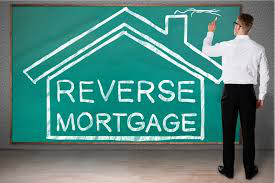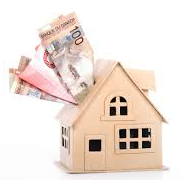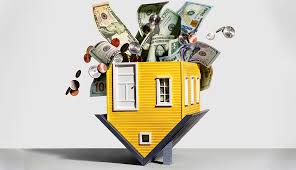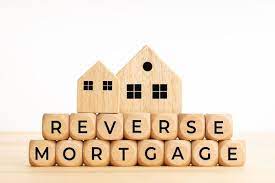 September 2024
September 2024
Interest in reverse mortgages has exploded.
As more condo owners enter their retirement years, many have insufficient financial resources to pay their mortgage, condo fees, taxes and living expenses. They have tied up most of their assets in their home and don’t have enough to cover living expenses.
A reverse mortgage can seem appealing although relying on one can put your home at risk.
 A reverse mortgage allows you to borrow against the equity in your home while continuing to live there. Unlike a traditional mortgage, it does not require you to make mortgage payments. You can use the money in any way that you want, and don’t have to pay back the loan or any of the interest until you sell the home or pass away. You never owe more than your home’s value at the time the loan is repaid.
A reverse mortgage allows you to borrow against the equity in your home while continuing to live there. Unlike a traditional mortgage, it does not require you to make mortgage payments. You can use the money in any way that you want, and don’t have to pay back the loan or any of the interest until you sell the home or pass away. You never owe more than your home’s value at the time the loan is repaid.
This sounds too good to be true.
Set up fees and interest rates are high. There can be a financial penalty if you pass away “too soon” after establishing a reverse mortgage. Interest accumulates each year so you end up owing interest on interest. The maximum value of a reverse mortgage is much less than the current value of your home. After 12 to 15 years, this debt can exceed the value of your home.
Consider alternatives before obtaining a reverse mortgage:
- A Home Equity Line of Credit (HELOC) costs less if you can pass an income stress test.
- Accept what is inevitable by downsizing and purchasing a lower cost home. This is a driver in demand for smaller and larger condominiums that offer a superior lifestyle with amenities, lower costs, fewer repair and maintenance obligations, and a home better designed for aging or physical difficulties.
- Try to rent out part of your home to prevent or reduce debt.
- Sell your home, rent and invest. Funds can be used to improve your lifestyle rather than struggle while trying to retain your home.
Reverse mortgages may be practical if you are unconcerned about having assets, and no desire to leave anything to friends or family, after passing on.
 Most retiring Canadians have over 60 percent of their net worth invested in their home. For many this means insufficient cash to pay their living expenses. Bringing this down to 30 percent reduces the risk of running out of money in retirement.
Most retiring Canadians have over 60 percent of their net worth invested in their home. For many this means insufficient cash to pay their living expenses. Bringing this down to 30 percent reduces the risk of running out of money in retirement.







